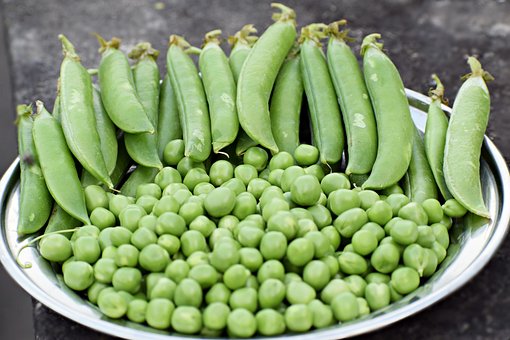5 Science-Backed Benefits of Chickpeas
Since the beginning of recorded history, people in countries located in the Middle East have cultivated and consumed chickpeas, which are also known as garbanzo beans.
Their grainy flavor and nutty flavor complement the flavors of a wide variety of other dishes and substances.
Chickpeas, which are a great source of vitamins, minerals, and fiber, may offer a range of health benefits. Some of these benefits include assisting with weight control, improving digestion, and lowering the risk of disease.
Furthermore, as a result of its high protein content, this bean is a good substitute for meat in a wide variety of vegetarian and vegan cuisines.
Here are 5 scientifically proven health advantages of chickpeas, along with some suggestions for easy recipes using them.

1. Might help you feel satisfied for longer.
Chickpeas include a good amount of protein and fiber, both of which can help you feel fuller for longer.
Protein and fiber both serve to slow digestion, which in turn contributes to an increased feeling of fullness. Additionally, there is some evidence that eating protein can lead to an increase in the amounts of hormones in your body that suppress appetite.
Because of the satiating benefits of the protein and fiber in chickpeas, your calorie consumption may naturally decrease when you eat them.
A total of 12 women participated in a study that examined their hunger and calorie consumption after eating two different meals.
In advance of one of the meals, they consumed 1.25 cups (200 grams) of chickpeas, and in advance of the second meal, they consumed two slices of white bread. In comparison to the meal consisting of white bread, the chickpea meal resulted in a considerable decrease in both their hunger and the number of calories that they consumed.
Another, more limited study indicated that people who snacked on chickpea-based hummus and pretzels in the afternoon had a 70% drop in their hunger and a 30% increase in their feeling of fullness after eating the snack.
Despite this, additional research on the relationship between chickpeas and the regulation of hunger is required.
2. Rich in plant protein
People who abstain from eating meat or other items derived from animals would benefit greatly by eating chickpeas because they are an excellent source of protein derived from plants.
The serving size of one cup (164 grams) contains around 14.5 grams of protein, which is comparable to the amount of protein found in foods such as black beans and lentils.
It’s possible that the protein in chickpeas can help you feel fuller for longer and keep your appetite in check. Additionally, protein is well-known for the function it plays in maintaining a healthy weight, maintaining bone health, and enhancing muscular power.
According to the findings of several studies, the quality of the protein found in chickpeas is superior to that found in other varieties of legumes. This is because chickpeas provide all of the essential amino acids, except methionine.
Because of this, they should not be considered a full supply of protein. It is vital to combine chickpeas with a whole grain that includes methionine, like quinoa, to ensure that you are getting all of the essential amino acids from the food you eat.
3. Could assist you in maintaining a healthy weight
The satiating properties of chickpeas make them a potentially useful food for weight management.
The protein and fiber in chickpeas may help you feel fuller for longer, which could lead to a reduction in the number of calories you consume at each meal.
According to the findings of one study, participants who consumed chickpeas regularly had a 53% reduced risk of having a body mass index (BMI) that was greater than 30, and they were also more likely to have a smaller waist circumference than those who did not consume chickpeas.
Bear in mind that the body mass index (BMI), which is still widely used as a health statistic despite its limited usefulness.
Despite this, a different study discovered that participants who had at least one serving of legumes daily, such as chickpeas, lost 25% more weight than those who did not consume legumes.
Even though these findings hold some promise, additional research on humans is required.

4. May aid in the control of blood sugar levels
There are multiple ways in which eating chickpeas can help you better manage your blood sugar levels.
To begin, they have a glycemic index (GI), which is a measurement of how quickly your blood sugar levels increase after eating a certain item, which is fairly low. It has been demonstrated that blood sugar control can be improved by following diets that contain a significant number of items with a low glycemic index.
In addition, the fiber and protein found in chickpeas may assist in maintaining healthy levels of blood sugar.
Because fiber inhibits the absorption of carbohydrates, rather than causing a spike in blood sugar levels, it promotes a sustained rise in those levels. Consuming foods that are rich in protein may also assist in preserving appropriate blood sugar levels.
When compared to eating two pieces of white bread, one study found that eating 1.25 cups (200 grams) of chickpeas inhibited post-meal increases in blood sugar levels by up to 36% more than eating white bread.
An older study that lasted for 12 weeks indicated that 45 participants who consumed four 10.5-ounce (300-gram) cans of chickpeas every week had a significant reduction in their fasting insulin levels. Insulin is an essential component in the regulation of blood sugar levels.
In addition, the consumption of chickpeas has been linked in several studies to a lower risk of a variety of ailments, including diabetes and cardiovascular disease. These effects are frequently linked to the ability of these substances to reduce levels of blood sugar.
5. May help digestion
Because of their high fiber content, chickpeas provide several advantages to the digestive system.
The majority of the fiber included in chickpeas is soluble, which means that it combines with the water in your digestive tract to form a substance that is similar to gel.
There is some evidence that consuming soluble fiber can both boost the population of beneficial bacteria in the gut and inhibit the growth of pathogenic bacteria. This could result in a decreased chance of developing certain digestive disorders, such as irritable bowel syndrome (IBS) and colon cancer.
One study found that eating chickpeas may assist improve digestive health by increasing the regularity, ease, and consistency of bowel motions.
